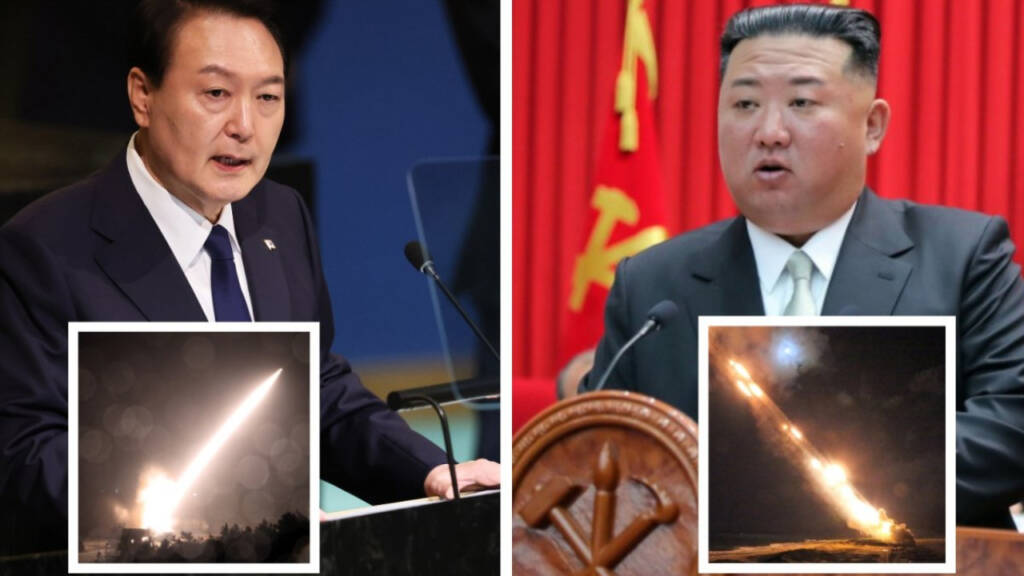Amidst the global focus on conflicts in Ukraine and the Middle East, a recent exchange of artillery fire between North and South Korea on January 5 draws attention to a neglected front in the ongoing global tensions. North Korea fired approximately 200 artillery shells into waters near two South Korean-held islands, situated along the Northern Limit Line (NLL), a disputed maritime border.
This incident ruptured the fragile 2018 agreement to withdraw armed forces from the Demilitarized Zone (DMZ), a region where substantial military forces, including US troops, confront each other. The location of the artillery exchange, previously the site of a deadly clash in 2010, has once again become a flashpoint, prompting South Korea to announce its own naval fire drills.
While the world is engrossed in more widely publicized conflicts, is the Koreas’ border skirmish the dark horse of international tension, or are we just witnessing a desperate cry for some spotlight attention?
Join us on Telegram: https://t.me/tfiglobal
After escalating tensions in Ukraine and the Middle East now the US is heading towards East Asia, where the US and South Korea collaborate on modernizing approximately 100 tactical nuclear weapons. This initiative, driven by concerns over a perceived growing threat from Pyongyang, has stirred tensions in the region.
So, after getting bored of the Ukraine and Middle East drama, the US is taking its show to East Asia. Is this some kind of global tour for stirring tensions, or are they just trying to collect passport stamps?
Not to mention, the War Lobby in the US, the RAND Corporation maintains direct influence on policymakers, fueled by funding from diverse sources, including the government and defense contractors.
RAND’s latest proposal adds a startling twist to its repertoire: advocating for heightened nuclear tensions on the Korean peninsula. Partnering with the Asan Institute for Policy Studies, RAND recommends modernizing around 100 tactical nuclear weapons to fortify South Korea against perceived threats from North Korea’s growing nuclear capabilities.
Read More: Hey Biden, Nuclear War in Korea Isn’t the Solution for Pyongyang
South Korea has now announced its intention to resume military exercises, previously halted under a 2018 security pact with North Korea. The decision comes in response to recent provocative actions by North Korea, including artillery fire near the border. South Korea’s military disclosed plans to recommence war games, encompassing live-fire artillery drills and operations along the land and sea border.
Officials argue that North Korea’s recent shelling in areas designated off-limits by the 2018 agreement implies the nullification of the pact. The escalation follows live-fire drills conducted by US and South Korean mechanized units near the North Korean border, which Pyongyang denounced as “reckless war maneuvers.” North Korea perceives such exercises as rehearsals for a full-scale invasion, promising countermeasures.
The resumption of military exercises underscores the fragile nature of the 2018 security pact and the escalating tensions in the region. The tit-for-tat actions between the two Koreas, coupled with external maneuvers, contribute to a precarious security environment on the Korean Peninsula.
Read More: Trudeau and his Chinese masters promise to rid South Korea of China’s influence. Yeah!
The Biden administration, concerned about North Korea’s expanding influence, seeks to dismantle this growing might by engaging in a strategic collaboration with South Korea.
As the Biden administration swaps the Middle East spotlight for a Korean encore, the stage is set for a thrilling geopolitical performance. Buckle up, folks, the Korean Peninsula drama is just beginning, and the Biden administration is ready for its close-up!
Watch More:
